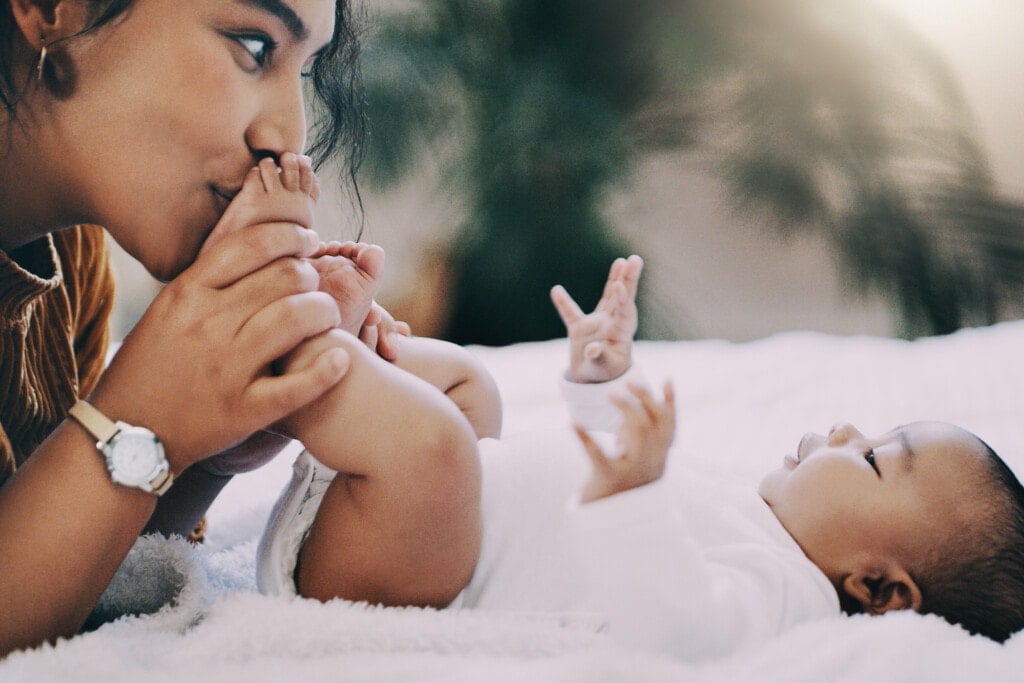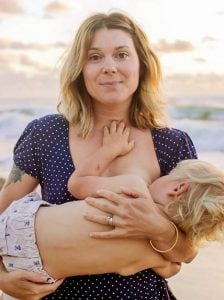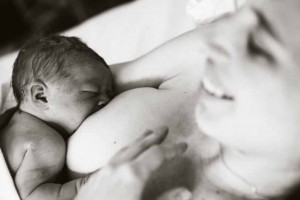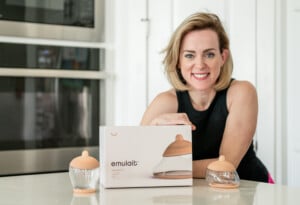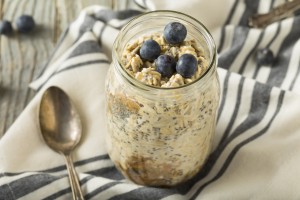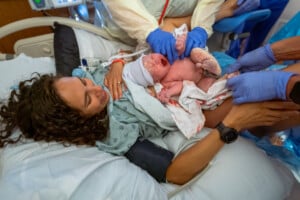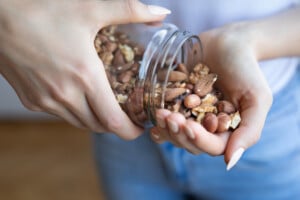Your breastmilk is constantly changing, influenced by your child’s needs. Numerous studies have shown that milk has immune-building properties and helps prevent illness in children. However, the process of how this actually happens is a much lesser-known aspect of breastfeeding. The amazing thing is that milk is not just a liquid—it’s an ever-changing tissue!
Do you remember the first time you held your baby? Often, our first instinct is to hold them close, touch their face to ours, and give them a little kiss. This is not random; it is science and instinct! We exchange germs by holding and kissing our babies, leading to antibodies in our milk to help protect our children. Even if you are tandem nursing (breastfeeding an older child along with a baby), your milk will continue to change to meet the needs of both children.5
Breastmilk as Medicine
Breastmilk is a dynamic, living tissue that continually changes based on your child’s needs. This happens throughout each 24-hour period and the entire period of time your child breastfeeds. So whether your child is 4 months old or 4 years old, they will reap the benefits. Your milk provides numerous protective factors against illness and microorganisms while also providing good bacteria and stem cells.3,4 This directly protects your baby. There is literally nothing like it! There is no substitute, as it’s continually changing to meet your child’s needs.
How Does Exposure Lead to Protection?
Will breastfed babies still get sick sometimes? Yes, of course! However, we know that breastfeeding greatly decreases the risks of many different health challenges. This includes diarrheal illness, obesity, and fewer acute illnesses.1 By just holding, kissing, and touching your baby, you are allowing your body to make the antibodies and protective factors needed for your baby.
As you kiss and cuddle your baby, their little germs go into your system, where your body then produces the antibodies to work directly against those little germs and bugs. Those antibodies then pass directly through your breast milk to your child. This important process happens the entire time you breastfeed. So, if someone questions the fact that you’re “still” breastfeeding your “older” baby or child, remind yourself of this fact. This is an important process that continues throughout your breastfeeding days, weeks, months, and years.
Another amazing part of this process is how your baby’s saliva changes your milk. As your baby breastfeeds, their saliva mixes with the breastmilk. The hypothesis is that it works partially as a “backwash” process, leading to the production of these antibodies for your baby. This interaction also plays an important role in establishing the baby’s microbiota.2
What if I’m Exclusively Pumping And/Or Mixed Feeding?
While the actual way in which your baby receives the milk can affect this process, as mentioned previously, we do know that even just kissing or touching your baby leads to a change in your milk. While your baby will not be mixing their saliva with your milk at your nipple, you will still be exchanging germs and bugs through cuddles and kisses. This will also help change your milk to fit your child’s needs. Remember, every bit of milk you can give your baby is important! If you are feeding formula and your expressed breastmilk (mixed feeding), you are still going through this process for that expressed milk to provide milk that meets your child’s specific needs.
As you cuddle and kiss your baby, you can also think about how amazing your body is at changing those cuddles into species-specific milk just for your child. Our bodies are incredible! Your milk brings them these immune-building properties. It also serves to comfort, gives pain relief, and is tantrum soother for when they are energetic, independent toddlers. Breastfeeding brings them (and you) so much.


















